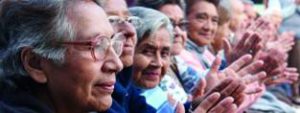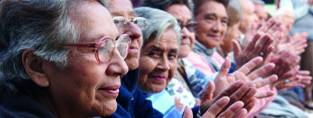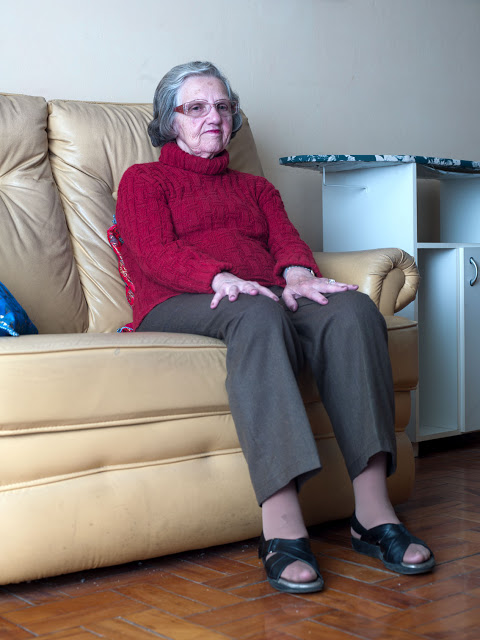During our research for the facts and figures on ageing in the countries we visited, we encounter information that gives a very distinct picture of the rapid ageing of the world population. In the 2015 report of the United Nations Population Fund , called “Ageing in the Twenty-First century: a celebration and a challenge”, they collected data on ageing from all countries. Immediately it becomes clear that the growth in numbers of people above 60, 80 and 100 have grown and are growing at a very fast rate. So much, that on this very moment 1 in 9 people worldwide are over 60 years old, and we expect this to be 1 in 5 people in 2015.
, called “Ageing in the Twenty-First century: a celebration and a challenge”, they collected data on ageing from all countries. Immediately it becomes clear that the growth in numbers of people above 60, 80 and 100 have grown and are growing at a very fast rate. So much, that on this very moment 1 in 9 people worldwide are over 60 years old, and we expect this to be 1 in 5 people in 2015.
What we knew, but impresses me more as we read the numbers, is that the growth of elderly and all aspects related with ageing in society (resources, health, social inclusion) are present in all countries. Somehow the idea of ageing population is strongly connected with the cracks that have been showing in inter-generational solidarity and welfare states in ‘developed’ countries. Personally I spend years of study reading and thinking about the health care system we build in Western Europe, and the way it could be and should be sustained.
The numbers in the UNPF report clearly show my misconception. Of the 15 countries that have a population of 10 million or more people over 60 years, there are 7 ‘developing’ countries. Growth of the elderly population is fastest in these countries, where there is often no lack of a large group of younger people. What we do find in Cambodia for example is that all NGO’s and the little government support that exists, are focused on children and women of a younger age. Despite the clear growth and questions that arise, there are few countries actively changing policies in practice, and few NGO’s focused on supporting this group.
This is interesting, especially since the traditional solutions of ‘developed’ countries are not sustainable any longer. There is a need for support of elderly that is based more on reciprocity, instead of one of the western ways of thinking: “I’ve worked hard, now I deserve my peace. I retreat from society and let others take care of me.” It is good to read in this report that the United Nations also supports the notion that ageing brings forth challenges and opportunities at the same time. How to bring this in practice, and which ways societies already developed these possibilities, is something we will bring to light in our research.

